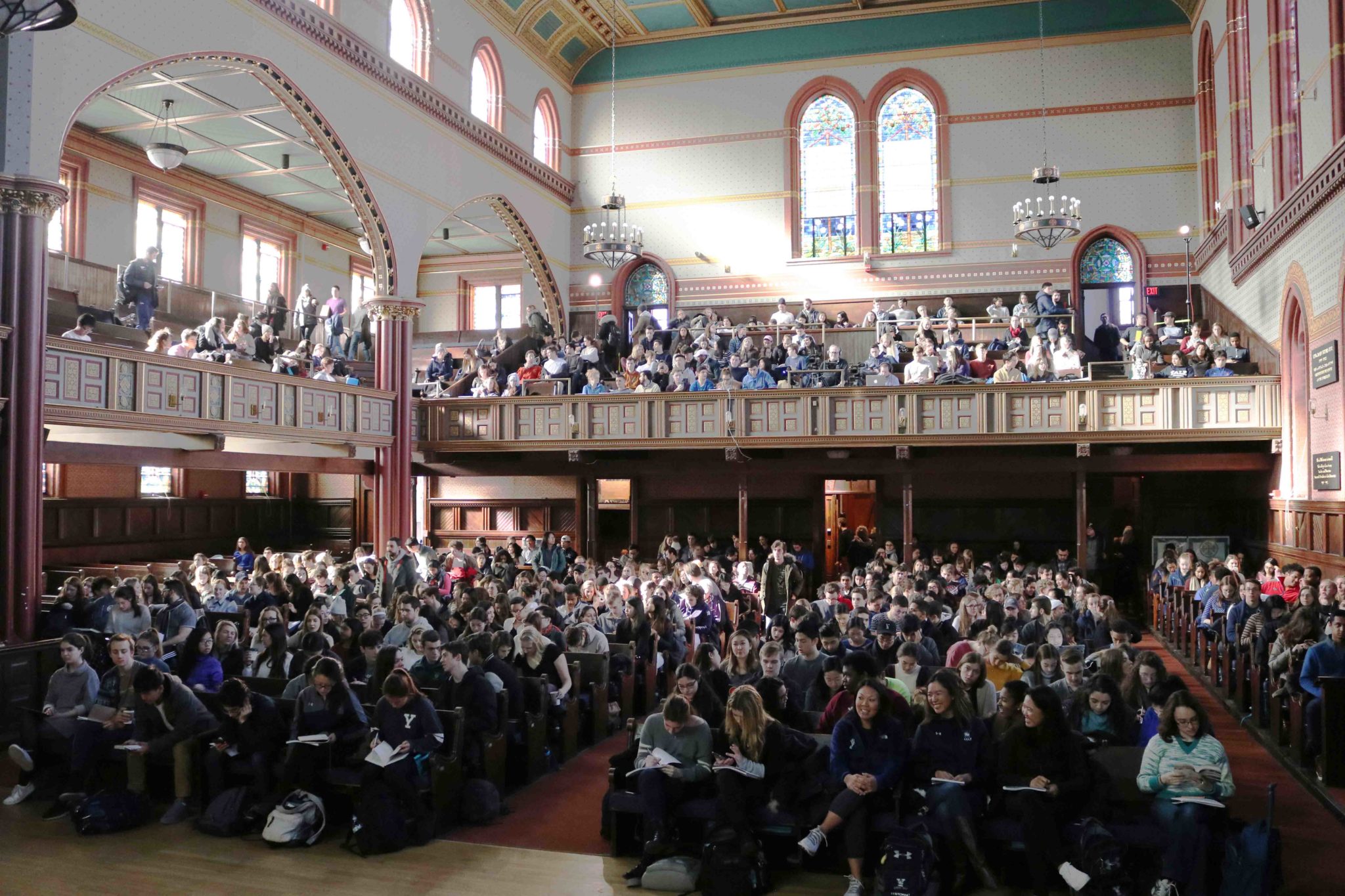
Aivy Duong ’21 meticulously curated her shopping schedule to fit in a seminar she had been eyeing since last year. It was heavily oversubscribed and packed from wall to wall on the first day. A week in, Duong still had not been notified of who was in the class. Still, she decided not to shop many other classes, since most of them overlapped with the coveted seminar.
A day later, the professor informed her that he would not offer her a seat in the seminar.
But Duong was not the only student to leave that seminar with their head hanging low. Although Dean of Yale College Marvin Chun announced the introduction of new shopping period guidelines last semester — including a request that instructors post a list of students admitted into their classes within 48 hours of the first meeting — many students have felt dissatisfied and frustrated with this semester’s shopping period.
Chun’s guidelines also advised instructors to include “detailed and clear criteria for admitting students” in course syllabi and to post syllabi on Canvas before shopping period begins. But Chun told the News in December that these guidelines were solely advisory, as administrators “don’t have any way to enforce them.” As a result, several students told the News that many professors have not heeded the recommendations.
“It’s been pretty difficult to try to map out my schedule for this semester as well as semesters beyond because a lot of my schedule planning is contingent upon whether or not I get into certain seminars or classes,” Duong told the News.
Arinjay Singhai ’22 told the News that while a seminar he attended and wanted to join was “clearly niche and advanced,” there was no indication online that it was a junior seminar. Singhai added that he was attracted to the syllabus and planned his schedule around the class, not knowing that he had “no hope in hell of getting in.”
Johnny Gross ’21 has heard several “nightmare stories” of friends at the top of the waitlist for several seminars entering the final days of shopping without knowing at all what their schedule looks like.
But Gross noted that this semester, shopping went more smoothly. Gross added that he was able to narrow down his classes more quickly, and most seminars he shopped accepted all interested students.
“We have more work to do, but as one early step, I am hoping that the new guidelines make course selection and registration a little smoother for both students and faculty,” Chun wrote in an email to the News. “I received positive feedback from some students. Independent of the new guidelines, students get frustrated to see some lecture courses capped. In the future, some form of pre-registration will allow us to plan teaching fellow and classroom assignments better, so we can fully accommodate student interest and make shopping period better for everyone.”
Professors interviewed also expressed mixed feelings towards the newly instituted guidelines.
History professor Valerie Hansen said that she appreciated that professors can now track student interest by viewing course demand statistics — a new feature for faculty. But she suggested that shopping period is shortened — down to a period of 5 days — so that students may submit their schedules after visiting class each day of the week.
“Frankly, I did not notice any improvements,” anthropology professor Claudia Valeggia told the News.
Valeggia said that the new preregistration guidelines, which allow students majoring in a department to register early, did not work for the course she is teaching. Valeggia added that graduating seniors should have advance registration privileges to avoid all the chaos she experienced.
Yale College Council President Saloni Rao ’20, a member of the student task force convened by Chun to discuss shopping period reforms, said that it is important to note that academic change at Yale is “incredibly slow and difficult to implement,” pointing out that the Credit/D/Fail reform announced last year took 10 years to achieve.
Rao noted that it is difficult to persuade tenured professors who are used to “doing things a certain way” to change their practices all of a sudden.
“We are hearing from professors that guidelines would be great, but it’d be greater if professors followed them,” Rao told the News. “A lot of students came into shopping period with this renewed glimmer of hope that it wasn’t going to be as much of a dumpster fire as before, so I think a lot of student came in hoping for those changes happening off the board, and some departments adopted them much quicker, but some did not.”
Still, Rao mentioned that in upcoming semesters, shopping will hopefully move towards one centralized system that will allow students and professors to track “everything to do with shopping period,” including pre-registration, waitlists and finalized schedules.
Jever Mariwala | jever.mariwala@yale.edu .







